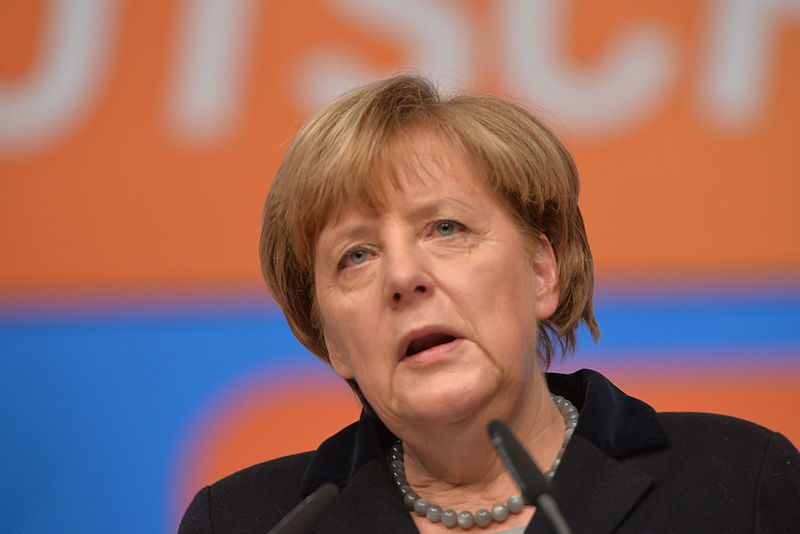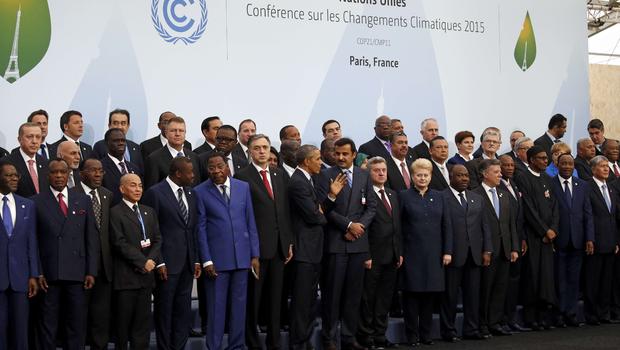Ambika Varma – Program Editor, Women in Security
Angela Merkel’s win in the German elections has been tumultuous. Although a victory, it signifies the amount of worry that pervades the German consciousness. In previous elections, the Alternative for Germany party (AfD) has been lurking behind the scenes, but this time the party gained more than 5 million votes, a total of 12.6% of the votes.
The election follows a global trend of rising populism. A few months ago, we witnessed Marine Le Pen win approximately 35% of the votes in France. Before that, Brexit captured the attention of the world and 51.9% of the UK population decided the leave the European Union. The UK Independence Party gained a significant amount of traction and the rest of the world was stunned at the result. The United States of America is another jarring example of the ideologies that are gaining traction across the world.
The trend is a representation of the distress that clouds the citizens of many nations. The AfD is a far-right party, which runs on a nationalistic platform that clamours for an anti-immigration and anti-EU nation. The party has been known for explicitly racist propaganda posters and controversial rhetoric. The backlash of many nations against immigration, despite the benefits it holds, follows a deep-rooted resentment following the major influx of refugees. What is most alarming is that this populist force seems to be spreading. Allowing immigrants into a country to contribute to the economy, and benefit from the social infrastructure in place has become a more leftist idea, rather than the idea that goodwill will benefit us all.
Daniel Morales – Program Editor, International Business and Economics
Angela Merkel will have a fourth term in office, fulfilling a widely expected result in the international community. However, the rise of the Alternativ für Deutschland (AfD) as the third largest parliamentary force is a sign that populism and discontent are still present in the country. This course of events certainly came as a surprise to many political analysts, who expected a less disruptive election. Moreover, this will have great consequences for the further integration of the EU.
Perhaps it was too soon to claim victory over the populist discourses inflaming the continent. Merkel’s re-election will certainly translate into the continued backing of the European project, however her need for the “Jamaica” coalition will only weaken her domestic position to do this. Additionally, this will create strong repercussions in Germany’s handling of the EU, as Merkel will have less flexibility to compromise with other countries in the union.
The most important implication will be the handling of fiscal austerity on the continent, and the likely attempt of Germany to have Italy and France carry out structural reforms. Merkel will be inclined to tolerate fewer risks in the country’s banking system and will want to reduce its risky position in the systems around the continent. However, despite Germany’s power to impose a German Eurozone, many countries in the region will resent this and push back, creating further conflict.
Merkel’s victory is a piece of positive news in a difficult European scenario. It is now more the case than ever that the rise of populist forces has become a challenge to the project of European integration. Further cooperation and a unified front, as Macron stated last week, will be the answer to those that want to force a European split.
Edward Tat – Program Editor, Emerging Security Threats
Centrism has not yet had its last breath. The result of the recent Bundestagswahl may be a diluted victory for Merkel’s battered CDU, especially with the fresh challenge of the far-right AfD, but it is a signal that Germans and perhaps all Europeans desire the stability of the middle ground. Getting things done in the Bundestag, of course, will be harder than ever before for the CDU. The centre-left SPD has planned to abandon Merkel’s party, rendering consensus building all but impossible. Until the centre reunites once more, German politics shall remain at a deadlock.
Rest assured, NATO and the EU themselves are safe. As a founding member of the Alliance and the European Communities that preceded the Union, Germany shall remain a cornerstone of security and open trade in Central Europe. If centrists in Germany had any sense, they will choose to embrace and wholly support these long-standing intergovernmental institutions for continued stability, despite the nationalist rhetoric of certain member states that has festered in the 2010s.
The only reason Europe has risen in the postwar world is because of the once-popular consensus that security and prosperity is better than war and poverty. The CDU and the SPD, as with all other political units in the Western world, need to demonstrate that consensus at the centre is still possible in an uncertain and polarized decade. Only then will the appeal of radical and extremist ideology fade into the oblivion of history.
Nancy Qin – Program Editor, NATO’s Arc of Crisis
Much has been said regarding the results of the 2017 German federal election. The most alarming result, however, must be the magnitude of parliamentary presence the AfD has gained. Known as the Alternative for Germany, the AfD is a nationalist far-right party whose politicians have voiced Islamophobic and anti-Semitic statements. Dubbed “the real winners of [the] election,” AfD won 94 of the 709 available seats in the German Parliament, the highest number of seats next to CDU/CSU and SDP. In his article, scholar Cas Mudde argues that the sharp increase in AfD popularity is nothing to worry about – that the statistics show the AfD’s voters were more or less voting against Angela Merkel rather than for everything the AfD stands for. He concludes that radical parties of populist rhetoric, although popular with voters, are unlikely to form strong, successful parties. Mudde’s insight has proven to be correct thus far, as the leader of AfD party, Frauke Petry, is deeply opposed to Björn Höcke, an AfD politician who has denounced a Holocaust memorial. Petry failed to unite her party against Höcke, and even stormed out of a press conference for the party the day after the election.
However, the rise of the AfD is still unsettling, to say the least. It is in line with the trend of increasingly right-wing politics and populist campaigns. However fractured, however inefficient in its ability to instate laws which reflect racism and other forms of discrimination, the AfD will make an impact. The AfD’s popularity illustrates a growing voice against diversity and inclusion, and while German policies may not see any sharp changes soon, the AfD’s new-found presence in the German government will likely contribute to the discrimination faced by immigrants and refugees, thereby further aggregating the refugee crisis in Germany.
Ben Mussett – Program Editor, Canada’s NATO
In Sunday’s election, the Alternative for Germany (AfD), a nationalist, anti-immigrant party, won an historic 13% of the vote. This represents the first time a far-right party will enter the Bundestag in over sixty years. And though this is certainly not welcome news, it should by no means suggest that Germany is now stumbling toward some dour, inward-looking future.
Yes, the AfD nearly tripled the 4.7% of the vote they received in 2013, but these results pale in comparison to recent populist upswings elsewhere in Europe, most notably Marine Le Pen’s second-place position in France’s presidential race. As Philip Stephens wrote in the Financial Times, “Germany did not vote for extremes. Take out the AfD and the post-communist Die Linke and nearly four-fifths backed recognisably mainstream parties.”
Still, the AfD’s success shows that even Germany is not immune to the global rise of far-right populism. More specifically, it demonstrates a sizeable aversion to Germany’s absorption of over one million Syrian refugees. However, funnily enough, much of the party’s support was actually concentrated in eastern Germany where fewer refugees were accepted. While supporters in these areas expressed concern over immigrants muddling traditional German culture, this antagonism towards non-Germans, like elsewhere, also appears driven by economic anxieties. Many East Germans have long felt neglected by Berlin and now believe this will only get worse as the government puts more money towards immigrant support. “There’s loads of refugees here in the town and I’m wondering what will happen to my pension,” said one man in the east German town of Dippoldiswalde.
Some don’t believe the AfD’s success can be explained by an uneven economy. Saxony, which the AfD dominated, saw its GDP grow by 2.7% last year. Nonetheless, the election results may still serve as a wake up call for Merkel’s Christian Democrats and impel her government to address the real economic grievances that exist in the east.
Brett Carson – Program Editor, Canadian Armed Forces
The results of the German election are worrying. They follow the current trend of the surge of the far-right. While this development is alarming, the AfD (the far-right party in question) only received 12.6% of the vote. To put that in comparison, far-right candidate Marine LePen received 34% of the vote in the French election, 52% of Britons voted for Brexit, and 46% of Americans voted for Donald Trump. So put in perspective, this 12.6% showing for the German far-right could be a sign of the alt-right losing momentum.
I do not mean to minimise the implications of this election. The first post-war entry of a far-right party into the Bundestag is significant; however, I hope the German mainstream parties will take this opportunity to address what allowed the AfD to gain power in the first place.
So how did the AfD gain so much support?
Just like the other elections mentioned above, this election largely boils down to immigration policy and much of the German population’s opposition to Merkel’s decision to take in 1 million refugees. While I would never suggest that Germany cows to the demands of a radical party such as AfD, perhaps this defeat will cause the mainstream parties to address the concerns of the AfD’s base (which is primarily in the poorer eastern part of Germany).
60% of AfD voters voted against the other parties, not necessarily because they are ardent supporters of AfD’s proposals. If the new Bundestag focuses on improving the standard of living in the eastern part of Germany, hopefully many AfD voters will return to the mainstream. If that occurs, then the AfDs success in this election will be a blip in German politics, rather than the new normal.
Photo: Angela Merkel Giving a Speech (2015), by Olaf Kosinsky. Licenced under CC BY-SA 3.0 DE.
Disclaimer: Any views or opinions expressed in articles are solely those of the authors and do not necessarily represent the views of the NATO Association of Canada.




